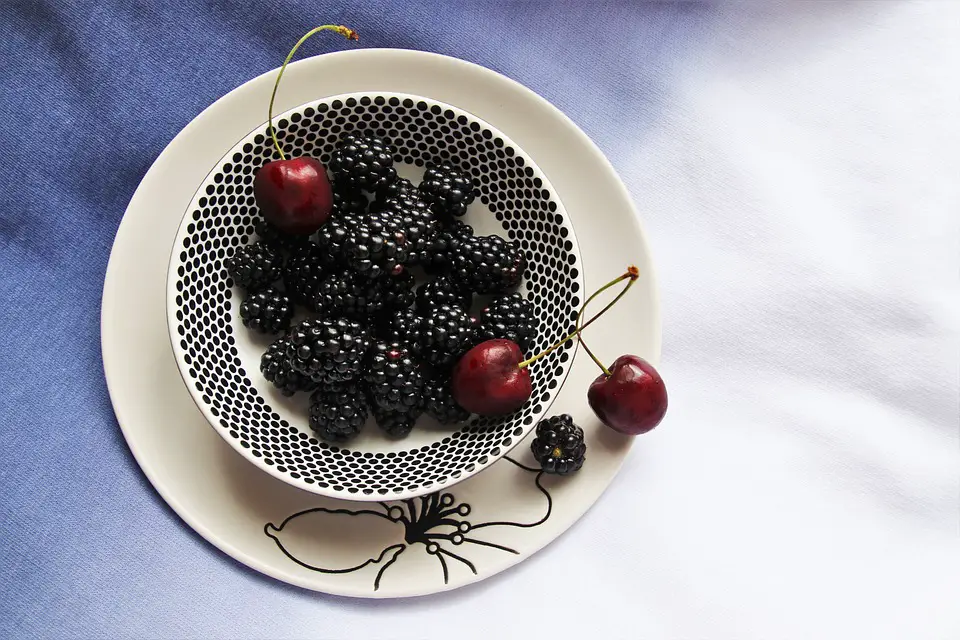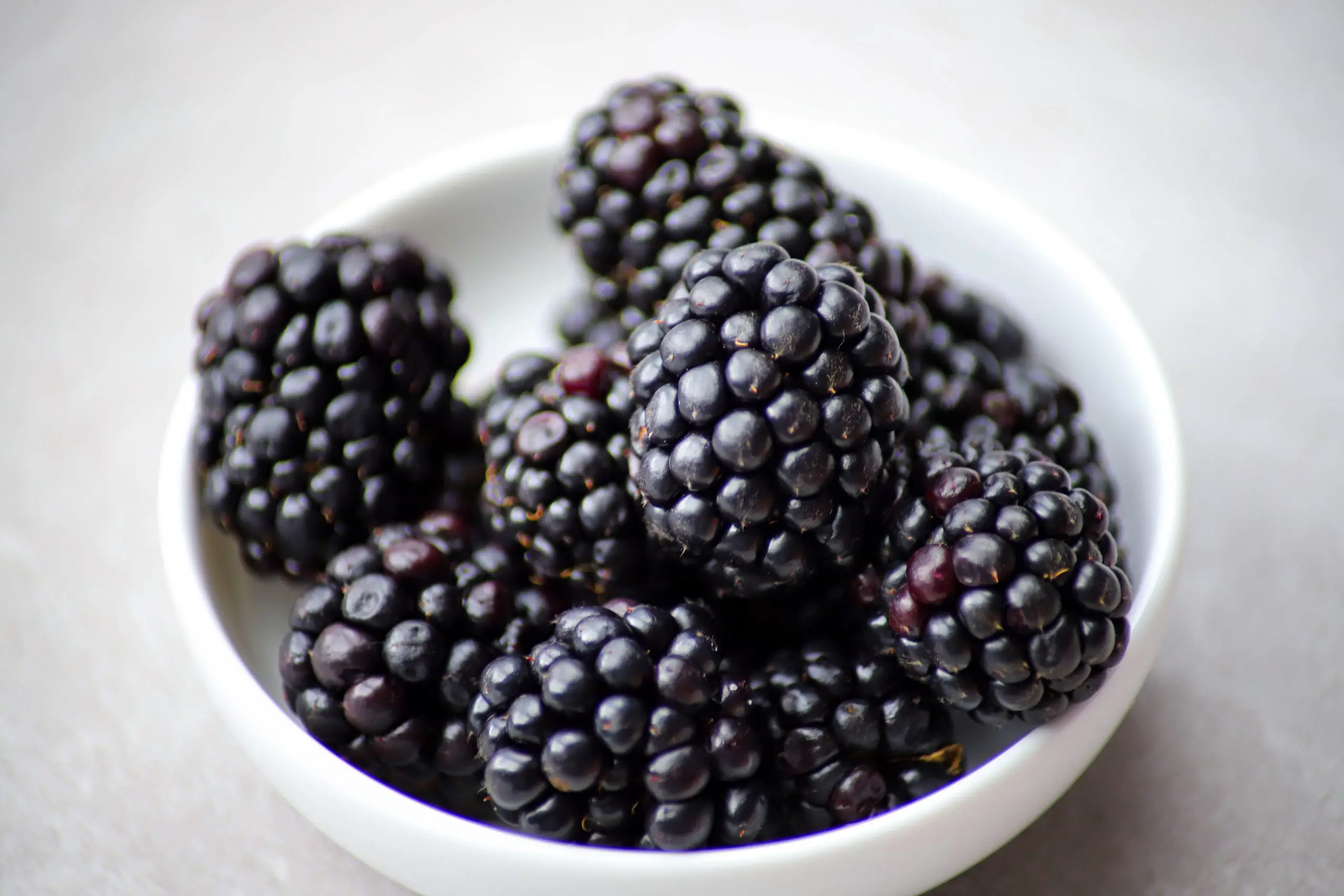All the fresh berries are one of the nicest parts of summer! I adore blackberries and enjoy using them in my cooking. I always have a lot of fresh blackberries in the summer because our farm has some productive tame blackberry plants. I picked up on the best methods for preserving the freshness of blackberries quite fast. If you buy blackberries, keep them in their original packaging, whether a cardboard berry box or a plastic clamshell. They must be kept in your refrigerator’s low-humidity crisper drawer and chilled (the fruit drawer).

Blackberries shouldn’t be washed until you’re ready to utilize them. If you want a portion of your berries, only wash what you require and keep the remainder in the refrigerator. No matter how dry the berries are, they will remain slightly damp if you wash them completely when you bring them home. Any water left on the berries may hasten their deterioration since moisture develops mold.
Describe Blackberry
In the rose family (Rosaceae), the blackberry is a prickly fruit-bearing bush distinguished for its dark edible fruits. Native to northern temperate areas, wild blackberries are most common in eastern North America and along the Pacific coast.
They are also grown in various areas of North America and Europe. Blackberries are frequently eaten fresh, preserves, or baked into desserts like cobblers and pies. They are also rich in iron, vitamin C, and antioxidants.
Blackberry plants are closely linked to raspberries and have prickle-covered biennial canes (stems) that grow in an upright, semi-erect, or trailing position (also in the Rubus genus). The compound leaves’ three or five-stalked, oblong, coarsely serrated leaflets typically survive the winter.
White, pink, or crimson flowers birth to terminal clusters of black or red-purple fruits.
How to Store Blackberries?
In the Refrigerator
To store berries in the fridge, adhere to these instructions:
- Pick a container with vents. Your blackberries will last longer if you store them in a container that lets them air. If it’s unbroken, you can keep your blackberries in the original grocery store container you purchased them in (often a plastic clamshell or a cardboard container with air holes). Berries require enough air circulation and should not be stored in sealed containers. Otherwise, they will go sour.
- Use a paper towel to line the container. Your storage container should have a piece of paper towel at the bottom. The excess moisture that causes the berries to rot more quickly will be absorbed by the paper towel.
- Put the container in the fridge. Put the jar containing your blackberries in a low-humidity area of the refrigerator. The fruit crisper drawer in your refrigerator is the best place. Fresh berries should be washed in a colander with cold water before use. Berries should only be washed when you are ready to use them rather than before storing them since moisture might promote deterioration.
In the Freezer
Blackberries should be flash-frozen to prevent them from freezing together into one large clump before being placed in the freezer for long-term storage. To make your favorite blackberry dishes, like blackberry cobbler and alcoholic blackberry brambles, all year long, follow this step-by-step guide on how to freeze blackberries.
- Use cold water to wash. The berries should be rinsed with water and placed in a colander or sieve. Alternately, stir them in a sizable dish of lukewarm water.
- To dry, use paper towels. Lay your blackberries out on paper towels or a kitchen towel in a single layer. Although you should primarily let them air-dry, you can hasten the process by gently patting them dry with a paper towel.
- On a baking sheet, arrange. To be ready for flash freezing, spread the blackberries on a cookie sheet covered with parchment paper. To avoid the berries clumping together while frozen, ensure they are not touching.
- Three-hour flash freeze. The baking sheet should be in the freezer for at least three hours. Although you can freeze it for longer, you shouldn’t exceed twelve hours. The process of “flash freezing” will stop the individual berries from adhering to one another once they are placed in a freezer bag.
Incorporate freezer bags. For long-term storage, take the baking sheet out of the freezer and place the frozen berries in freezer-safe containers or thick plastic bags. These frozen blackberries won’t freeze burn or lose flavor when kept in the freezer for up to six months.
The blackberries’ shelf life can be increased to nine months in the freezer by combining them with one cup of sugar before freezing.
How to Spot a Bad Blackberry?
Blackberries are plump and black-blue when they are fresh. They will start to exhibit signs of degeneration as they decay. Before they become unusable due to spoilage, you’ll have some time to save them. As blackberries ripen, they become softer and lose quality. You can still consume or utilize them, or even better, use them to create jams, fruit salads, or smoothies.
There are certain unmistakable indicators when blackberries are beginning to spoil. To determine whether the blackberries have rotted or are starting to deteriorate, look for the following signs:
Any fruit that has mold developing on it should preferably be thrown away. The inside of the blackberry is probably rotten if only a small area contains mold. Mold doesn’t show up on spoiled fruit until it’s too late.
Gently squeeze the blackberries; throw them away if they are squishy and the liquid is leaking. Its consistency might range from slimy to runny. In any case, you should refrain from eating it as it can be contaminated with dangerous microorganisms.
Fresh blackberry scent won’t be present. If it starts to smell bad or sour, throw it away.
Reference: Anthocyanin pigment composition of blackberries
How Long do Blackberries Last?
Blackberries last approximately a day or two at room temperature. Some of them will be gone the next day if you leave them on the counter overnight in the summer heat. If you adhere to all of the storage above recommendations, they can be kept in the refrigerator for up to a week.
Naturally, this depends on their caliber, when they were harvested, and how long they were kept in storage before being sold to you. Use them within 3 to 5 days to ensure the optimum quality and prevent ruined or overripe specimens.
Can Blackberries be Freeze?
If you like blackberries, you may have already bought some frozen ones. You know that blackberries freeze nicely as a result.
Depending on what you intend to do with the blackberries, there are various ways to freeze them. The berries can be pureed, chopped, sliced, frozen, or made jam. Each technique can require additional work.
When it comes to freezing blackberries, dry freezing is the most efficient technique. Now all you need to do is carefully clean the berries. After that, put them on wax paper. It may be held up by being set on a tray. After that, flash-freeze the berries by placing them in the freezer for two to three hours.
Once they are frozen, transfer them to an airtight container or freezer bag. Seal the bag, add a label, and place it in the freezer.
To prevent the blackberries from sticking together while freezing, they should first be quickly frozen. Without worrying about them sticking together, take as much as you need and put the remainder back in the freezer. Blackberries can be kept in the freezer for up to 6 months; you can still eat them beyond that period, but the flavor and texture will change.
How can Blackberries Stay Fresher for Longer?
Fresh or frozen blackberries are available for purchase. Ensure the frozen blackberries aren’t past their expiration date to prolong their freshness. Look at the printed date on the package to find out when the blackberries will expire. Manufacturers frequently add preservatives. Thus, you could notice that they have a longer expiration date.
On the other hand, before buying fresh blackberries, they must be quality-tested. Select the freshest one to make sure it lasts as long as possible. Blackberries in season should be firm to the touch and a consistent shade of blue-black.
If they’re a little mushy and squishy, you can buy them, but only if you intend to consume them within a day or two. If you don’t, you won’t get a chance to eat them before they spoil.
A farmer’s market, in addition to grocery stores, is an excellent place to buy fresh blackberries. However, you can only buy them when they are offered, which is typically in the summer. The fruit quality is typically at its best at the farmer’s market. Blackberries are often picked the day before or after the sale at farmer’s markets. You will therefore receive the best-possible blackberries.
Conclusion
When storing blackberries, be sure to use a container with ventilation. Many berries are prone to spoilage if they don’t get the proper ventilation. Some popular options include vented cardboard boxes or clamshells. Rubbermaid Fresh Works Produce Saver containers are also a great option. These containers allow for proper ventilation and can be placed anywhere in the refrigerator.
For best results, store berries in the refrigerator for three to five days. Be sure to check for mold, moisture, or broken berries. If you can, store berries upside down in a clean, ventilated container. Airtight containers will cause the berries to mold, so keep the container clean.
